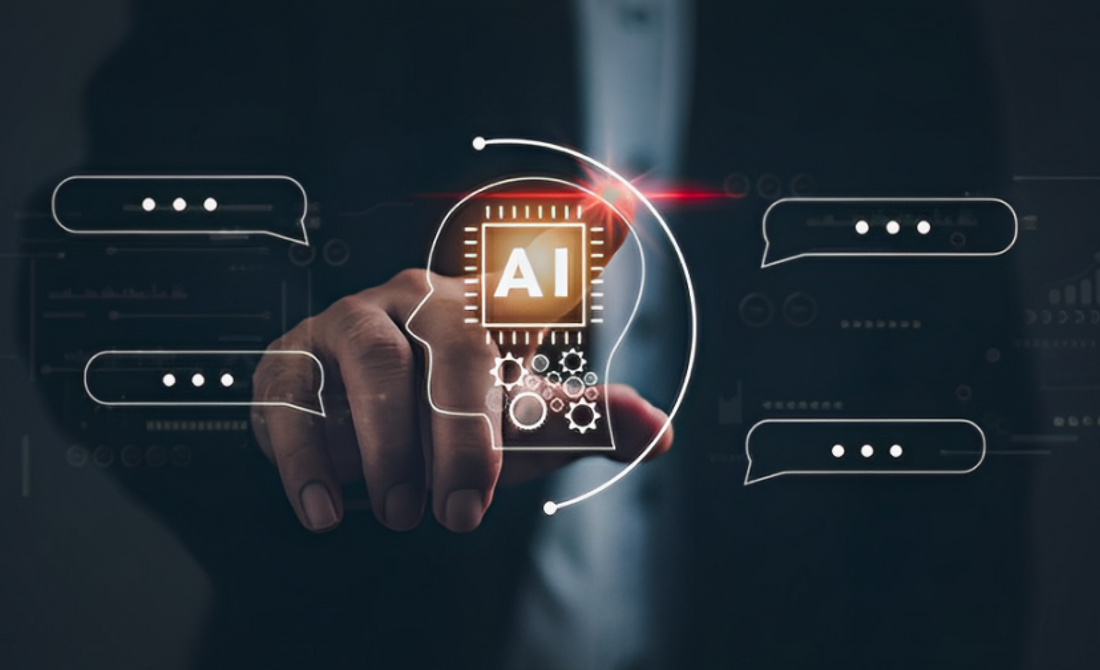How Is AI Transforming Customer Experience In 2024?
AI
Customer experience
customer experience 2024

AI or Artificial Intelligence is no longer our future - it is the present. With the power to transform every aspect of our lives, it is now influencing how we offer services to our customers as well.
Your target market now expects a prompt response for all their queries including when placing an order, creating an exchange, or having any billing issues.
The growing popularity and increasing competition have forced ecommerce businesses to improve their customer experience strategies. But with the advent of AI, it is no longer an unconquerable mountain.
Many businesses now use the power of AI to make strategic decisions, gain customer insights, identify trends, and accordingly tailor their services.
Want to learn more about the power of AI in transforming customer experience?
Let’s start!
Top 9 Ways In Which AI Is Transforming Customer Experience in 2024
Today, we will discuss how you can integrate AI into your Shopify store to improve customer experience in 2024.
#1 Enhanced Customer Interaction Across Channels
Your businesses can now handle large numbers of consumer interactions with ease thanks to the power of AI. It offers smooth and easy assistance over a variety of channels, such as social media, live chat, email, and phone.
Artificial intelligence (AI) techniques such as Natural Language Processing (NLP) understand consumer enquiries in real time, allowing you to offer quicker and more precise answers to their users.
These tools contribute to an integrated client experience by ensuring that interactions feel consistent and connected regardless of the channel a consumer uses.
For example, Walmart, one of the largest U.S. based retail chains, uses AI-driven systems and chatbots to handle surges in customer care demands, particularly on Black Friday and other peak shopping periods. These artificially intelligent systems can handle everything from basic inquiries about store hours to complicated addresses like order tracking and inventory availability, allowing Walmart’s support crew to scale rapidly while preserving customer satisfaction.
#2 Fast, Always-On Customer Support
AI allows you to offer 24/7 support that is the primary requirement of today's consumers. With the help of AI-powered chatbots, you can give your customers the same level of timely service, even on holidays and late at night.
AI also facilitates communication by providing human agents with pre-written responses that helps to shorten handling and response times.
You can read our guide on ecommerce tips to grow your business in 2024.
#3 Accelerated Onboarding of Customer Service Teams
New employees often require significant time to familiarize themselves with company policies, customer service protocols, and the handling of diverse issues.
However, by giving new recruits real-time guidance, AI tools are completely changing the onboarding process.
AI Virtual assistants can imitate a variety of customer service situations by giving them immediate feedback on their answers. Compared to traditional training techniques, this real-time coaching helps to improve their language, tone, and problem-solving abilities more quickly.
For instance, American Express uses an AI system to give recommendations in real time based on the flow of the discussion by suggesting how to make responses more professional or sympathetic depending on the circumstance. This removes the need for continual surveillance, allowing new agents to gain proficiency and confidently tackle challenging requests.
#4 Increased Productivity with AI Automation
In addition to managing standard customer contacts, AI also automates tedious jobs. It helps to prioritize tickets so that human agents can focus on more urgent problems.
An actual example of this is Best Buy, a well-known electronics company in the United States, which automatically classifies and routes customer support tickets using AI-driven algorithms. The most suitable agent is assigned to each customer query based on the system's identification of its type, such as technical help, return requests, or product enquiries. As a result, Best Buy has improved customer satisfaction and efficiency by drastically cutting down on its average ticket handling time.
#5 Highly Personalized Experiences
Artificial Intelligence (AI) allows businesses to provide highly customized experiences. It includes examining enormous volumes of consumer data, browsing habits, preferences, past purchases, and even interaction patterns. By leveraging these machine learning algorithms, you can generate product recommendations, targeted marketing campaigns, and tailored communication strategies that are relevant to your target audience.
For instance, Nordstrom improves customer purchasing experiences through the use of AI-powered customization features. The AI system makes recommendations for clothing, accessories, and cosmetics that complement the shopper's style based on past purchases, product views, and customer interactions.
#6 Proactive Problem Solving
AI technologies help companies to predict the needs of their consumers thus fulfilling them before they even arise. In addition, AI can also recommend preventive steps to avoid difficulties like delivery delays or product availability problems by examining patterns in customer behaviour. This increases brand loyalty as well as improves client satisfaction.
For example, Walmart uses AI-powered tools to control its inventory and supply chain. The algorithm can forecast when specific items might run out of stock and automatically recommend refilling before an issue occurs by evaluating real-time data from warehouses and client purchases. This increases consumer happiness and brand loyalty by preventing delivery delays and guaranteeing that customers can consistently access popular products.
#7 Quality Assurance and Feedback Improvement
Incorporating AI into quality assurance processes ensures that an ecommerce business can objectively review and improve customer service interactions. AI-driven systems evaluate user sentiment and agent performance in real-time, allowing for quicker feedback and customized coaching, leading to better service delivery.
For instance, Wells Fargo, a financial services business with headquarters in the United States, uses AI to support its quality assurance initiatives. Their AI-powered systems track phone conversations and live chats to assess consumer attitude, highlighting instances in which agents might need to soften their tone or offer more assistance. Through real-time data analysis, Wells Fargo enhances customer happiness, equip agents with timely coaching, and uphold high service standards across all channels.
#8 Advanced Customer Sentiment Analysis
Artificial intelligence (AI) systems can forecast client behaviour by analysing unstructured data, including emails, customer reviews, and support discussions. By using techniques like natural language processing (NLP) and sentiment analysis, these tools can detect subtle shifts in customer emotions, such as frustration or disappointment, that might otherwise go unnoticed.
This helps companies to better retain customers by proactively addressing issues before they become more serious.
For instance, Netflix uses an AI-powered system to examine user reviews and interaction patterns in order to identify accounts that might be susceptible to churn. When a user expresses unhappiness, such as by cutting down on viewing time or posting unfavourable reviews, the AI system notifies the customer service team so they can offer customized solutions. It includes suggesting other materials, making offers that are exclusive to them, or extending their free trial period.
#9 AI-Powered Special Offers
AI's capacity to evaluate enormous volumes of consumer data has completely changed how companies offer tailored deals, resulting in more focused and engaging consumer encounters. Using AI algorithms, businesses can track consumer behaviour, past purchases, and preferences to provide real-time, highly relevant promos and recommendations.
For example, the well-known American meal-kit delivery service Blue Apron uses AI to generate customized meal plans by examining past orders, dietary requirements, and client preferences. Additionally, the AI system also makes recommendations for different ingredients depending on user feedback and browsing patterns. Blue Apron's AI can automatically apply exclusive discounts to clients who leave their carts empty thereby boosting engagement and motivating them to complete their purchases.
Final Thoughts
AI has developed into an effective tool for revolutionizing the way ecommerce companies oversee and improve the client experience. It has the ability to improve customer service in a number of ways, from predicting customer demands and personalizing interactions to increasing productivity and providing round-the-clock assistance. By integrating AI technologies, businesses can not only meet growing customer expectations but also stay ahead of the competition in 2024 and beyond.
CrawlApps
At CrawlApps, we don’t just build Shopify stores—we create experiences that sell. We’re a bunch of problem-solvers who love turning ideas into stores that actually converts. Whether it’s fixing what’s broken or building something from scratch, we make sure every detail works in your favor. No fluff, no jargon—just real solutions that help your business grow. If you’re serious about Shopify, you’ll feel right at home with us.















